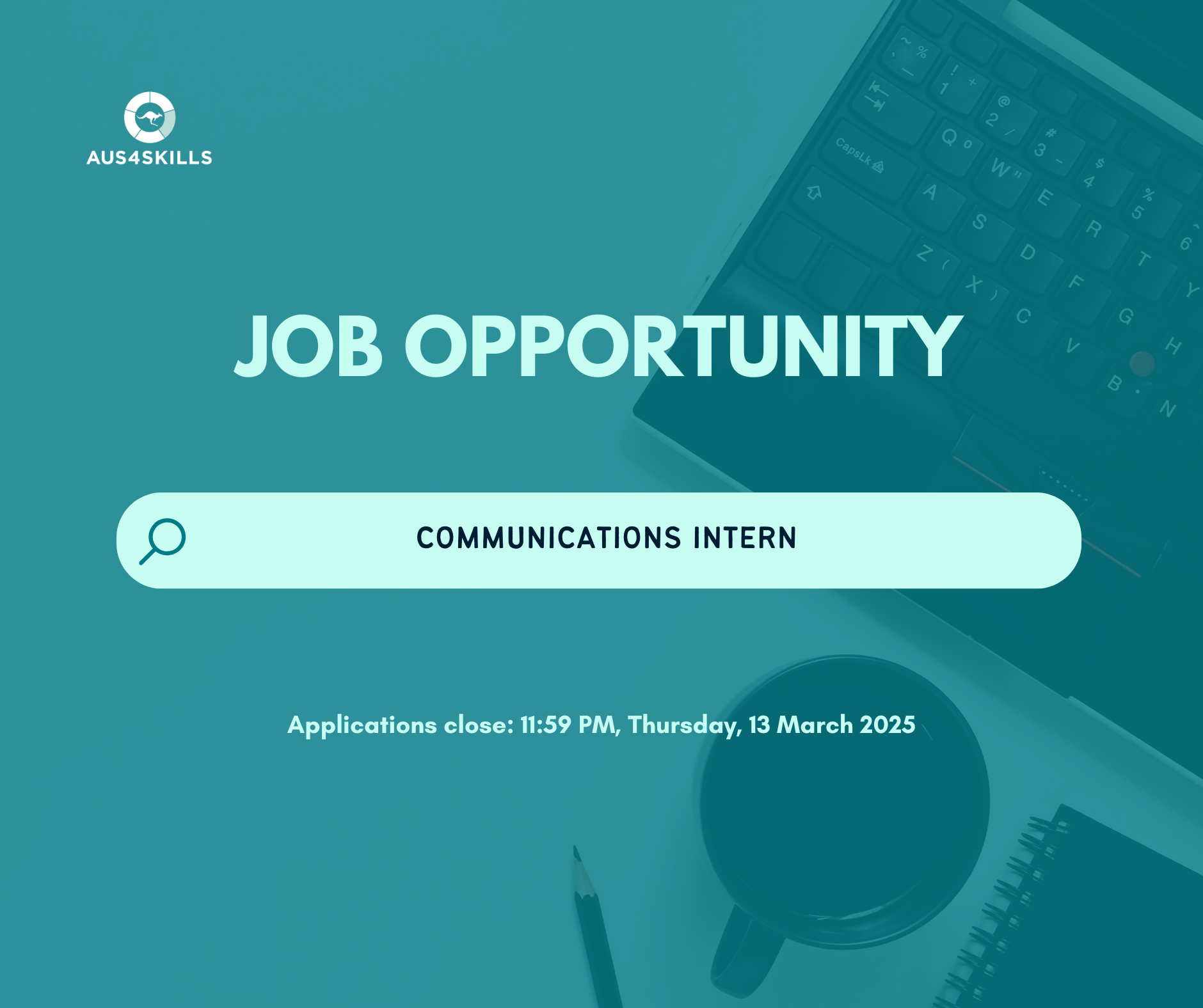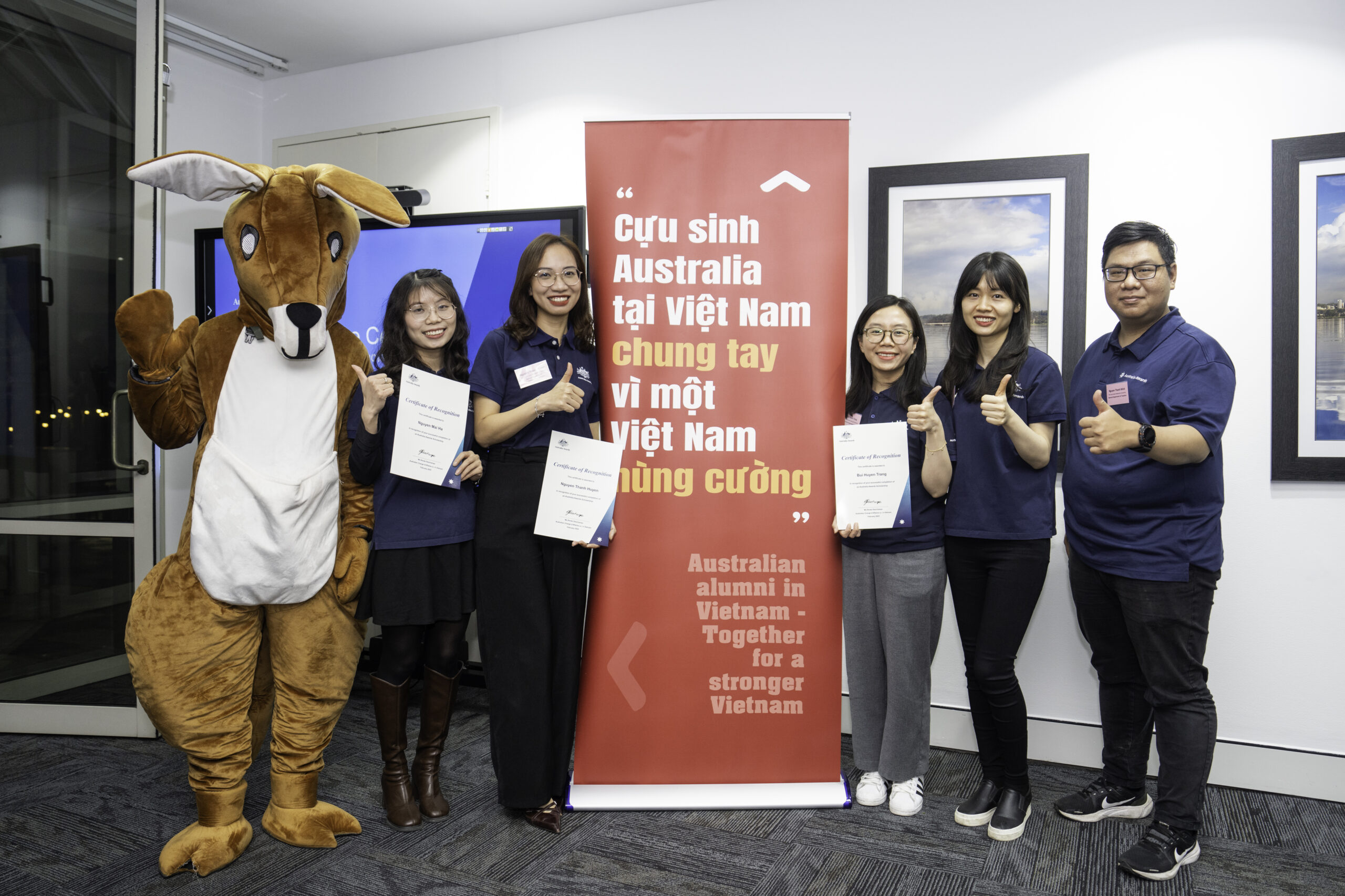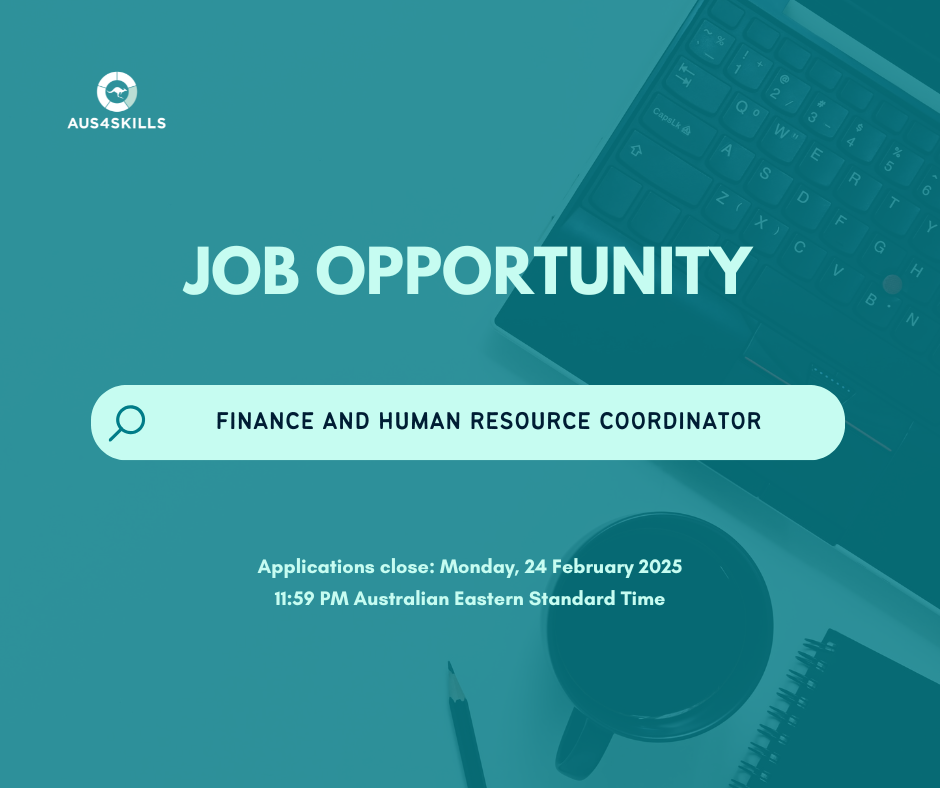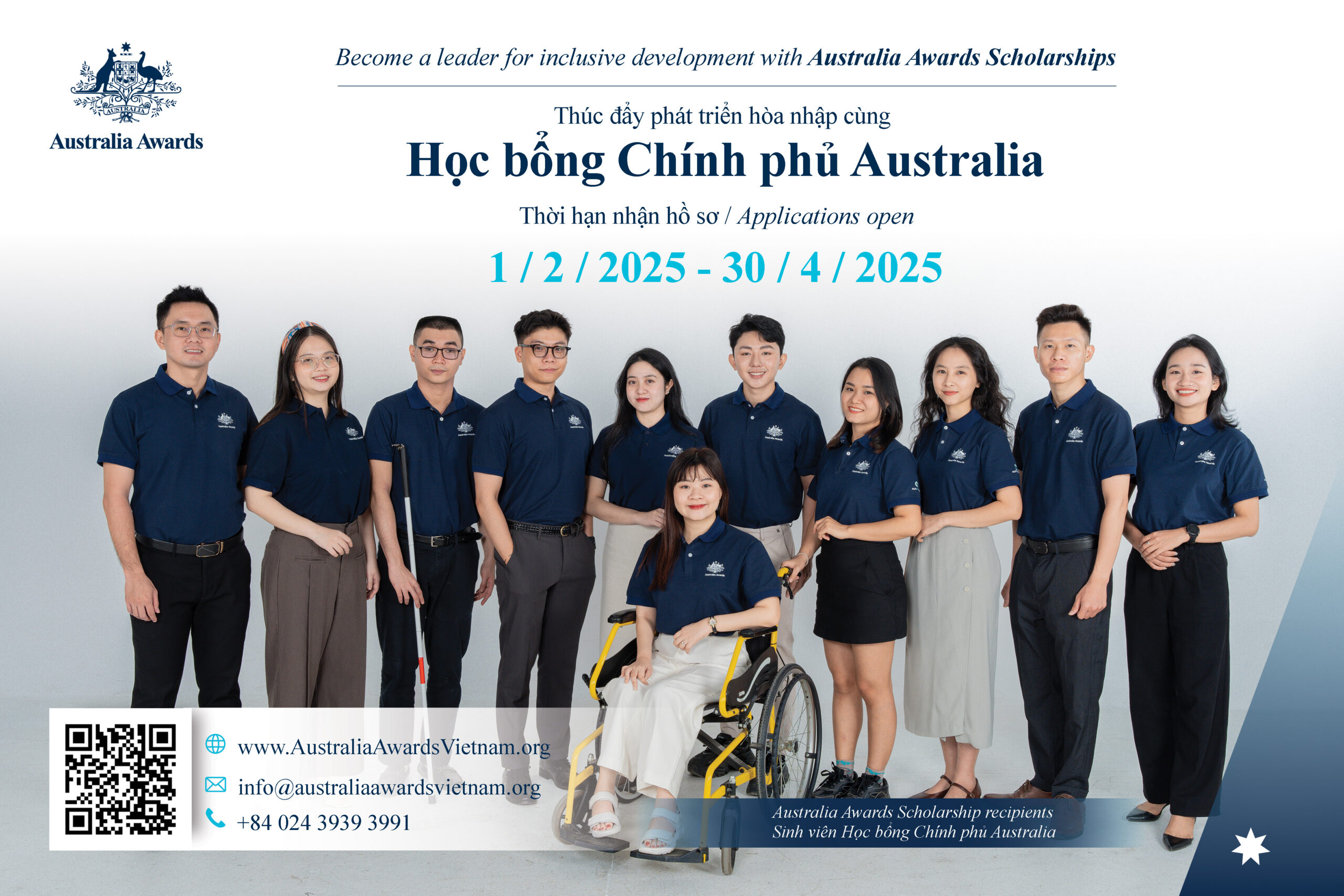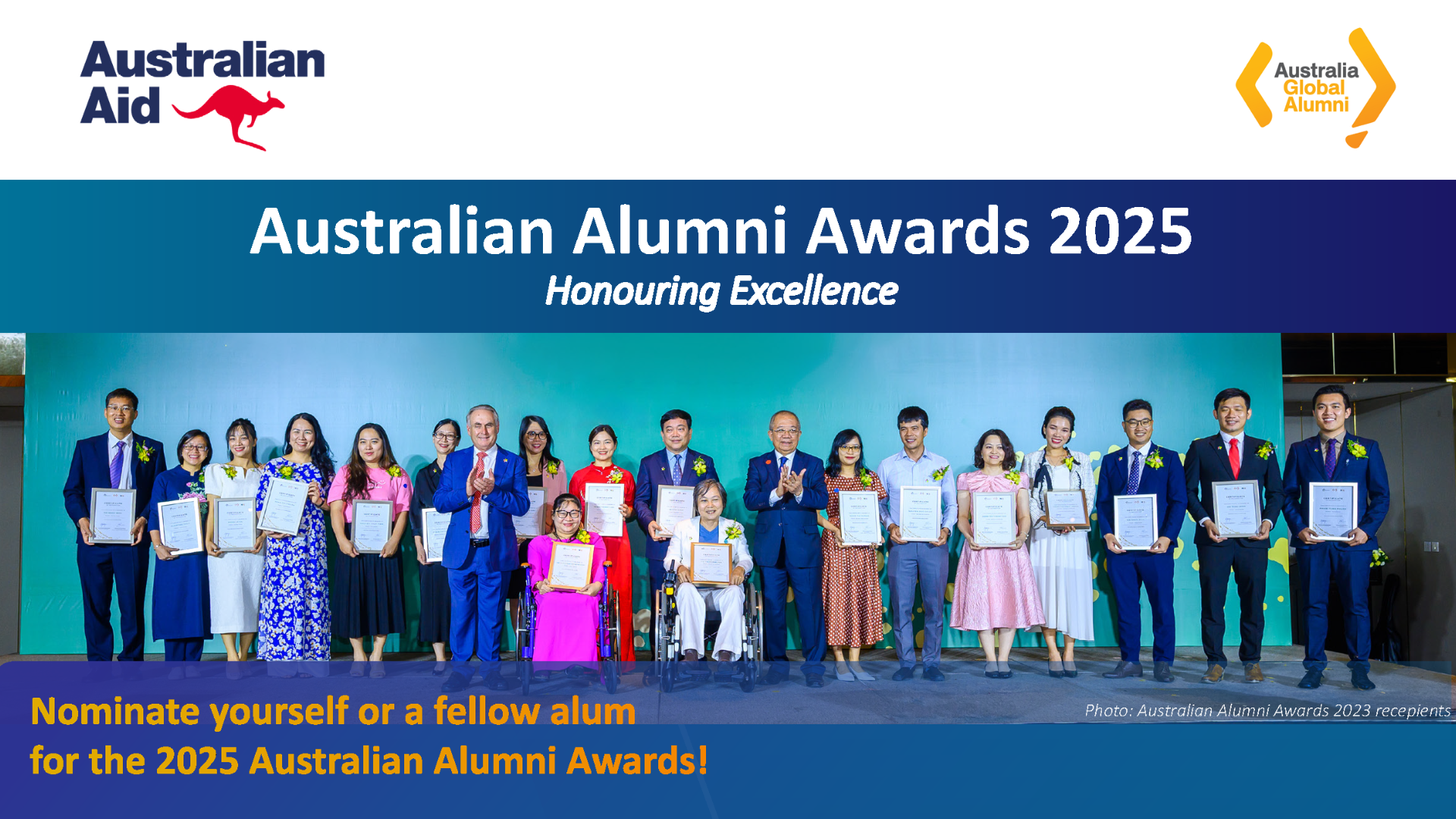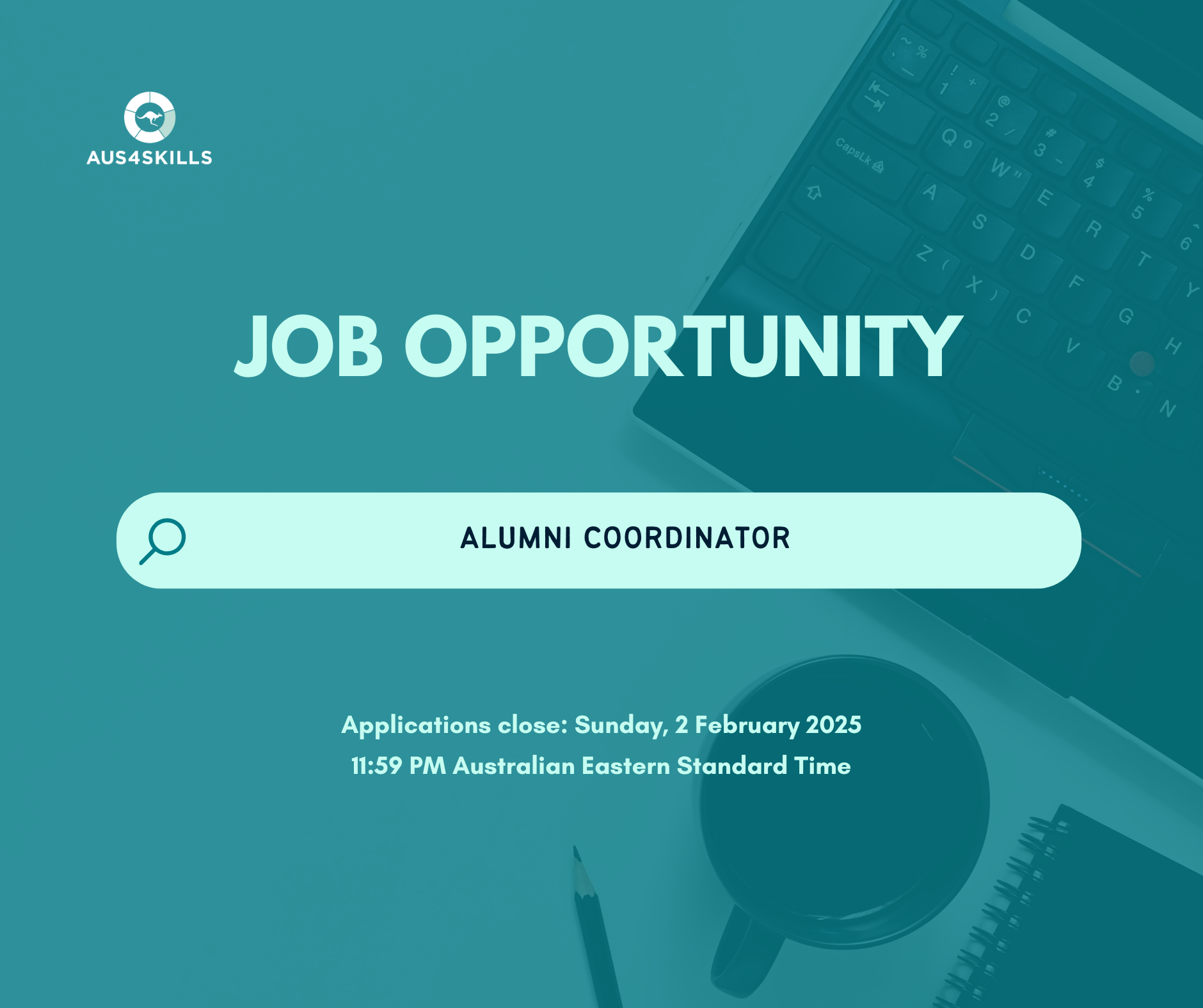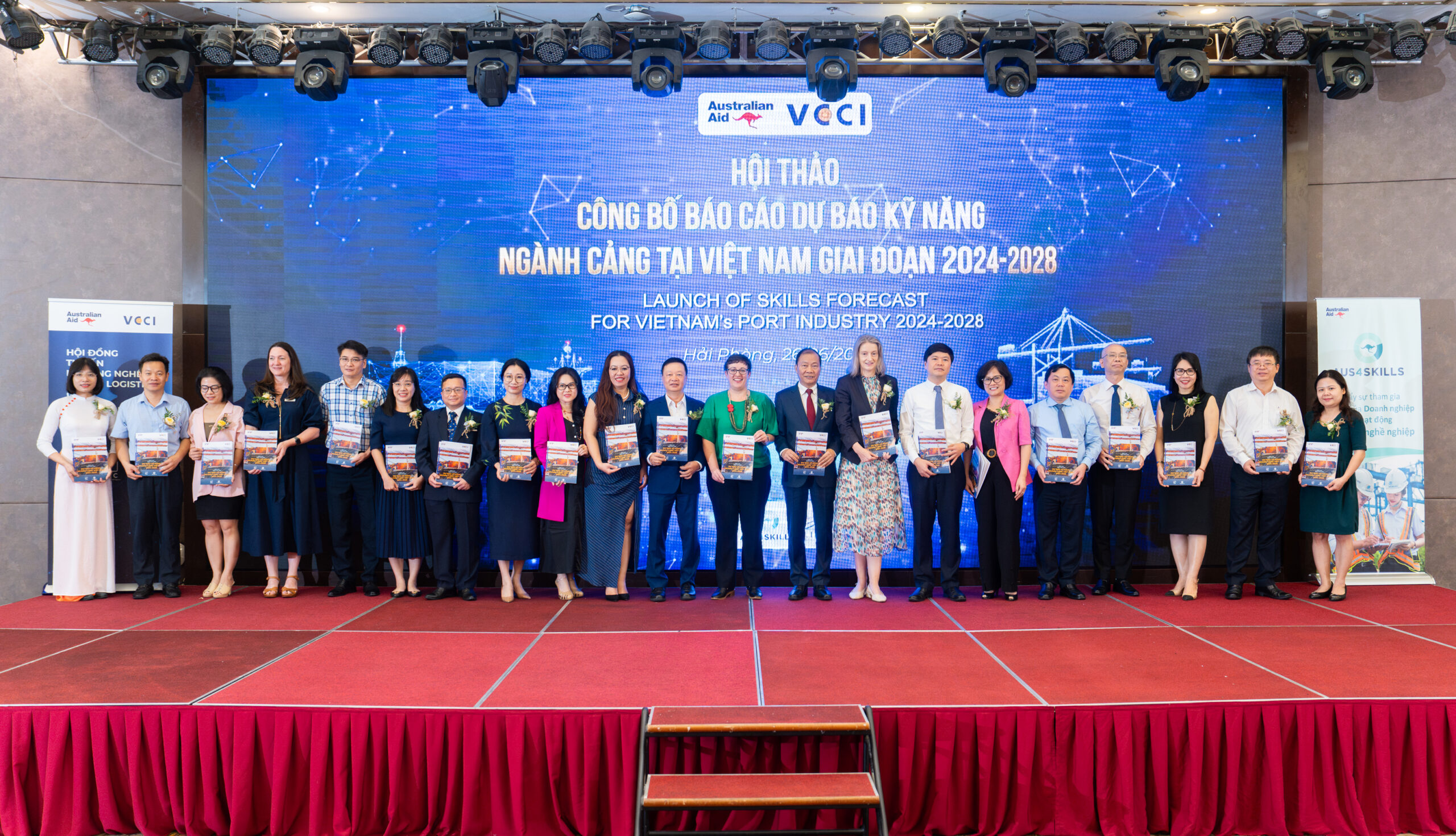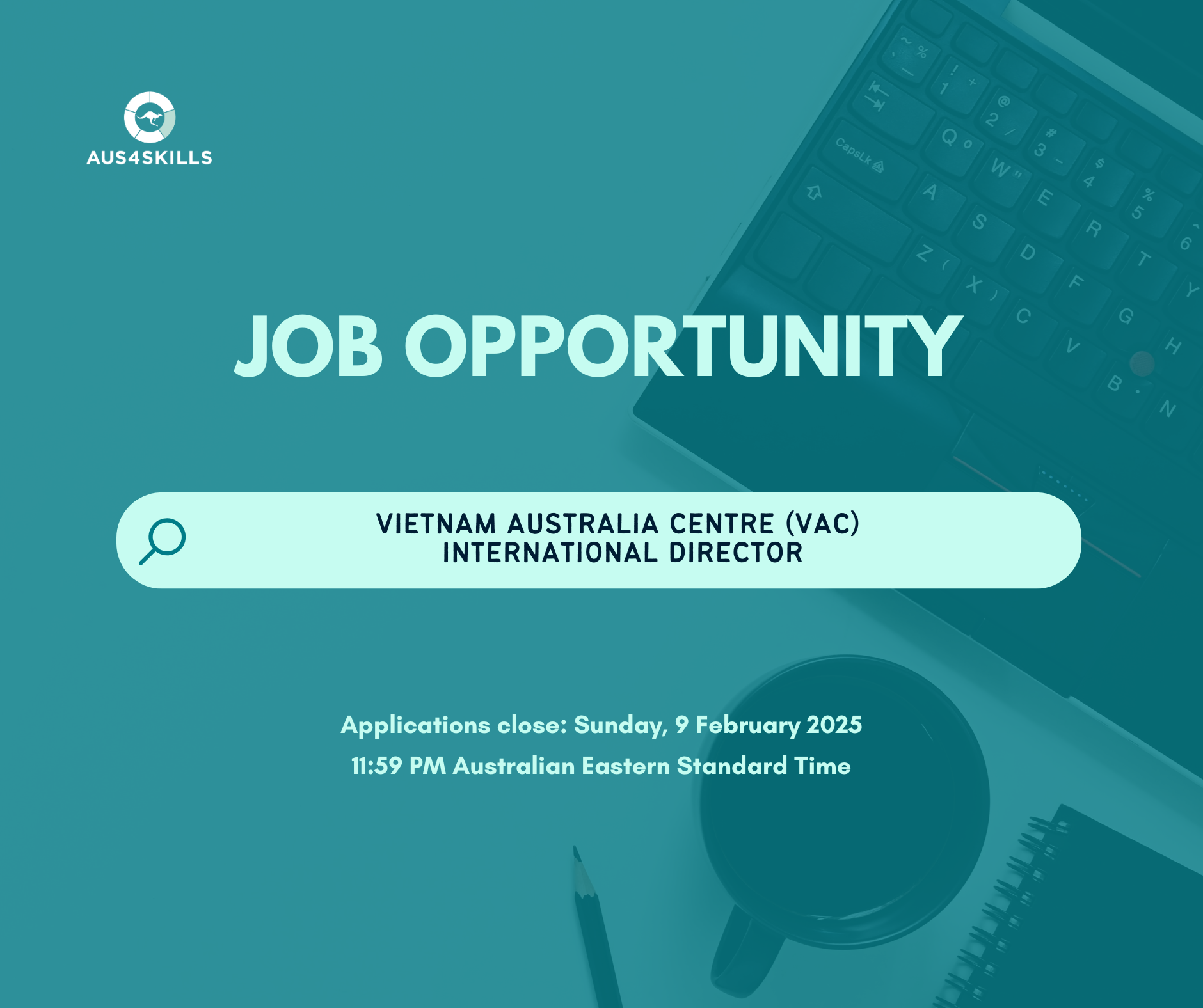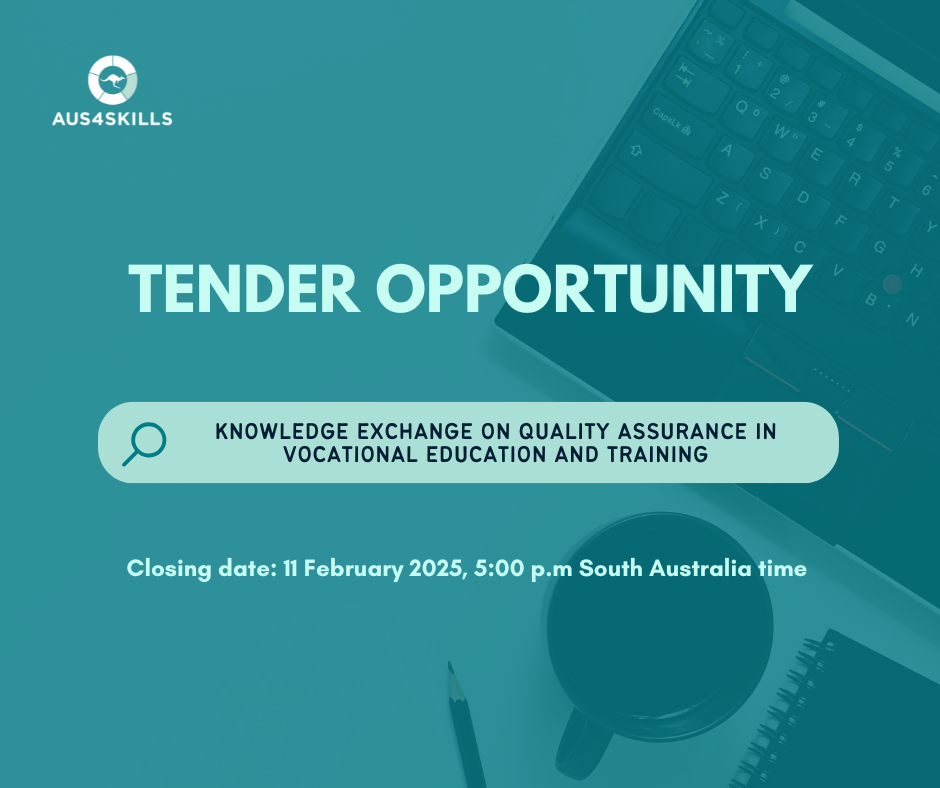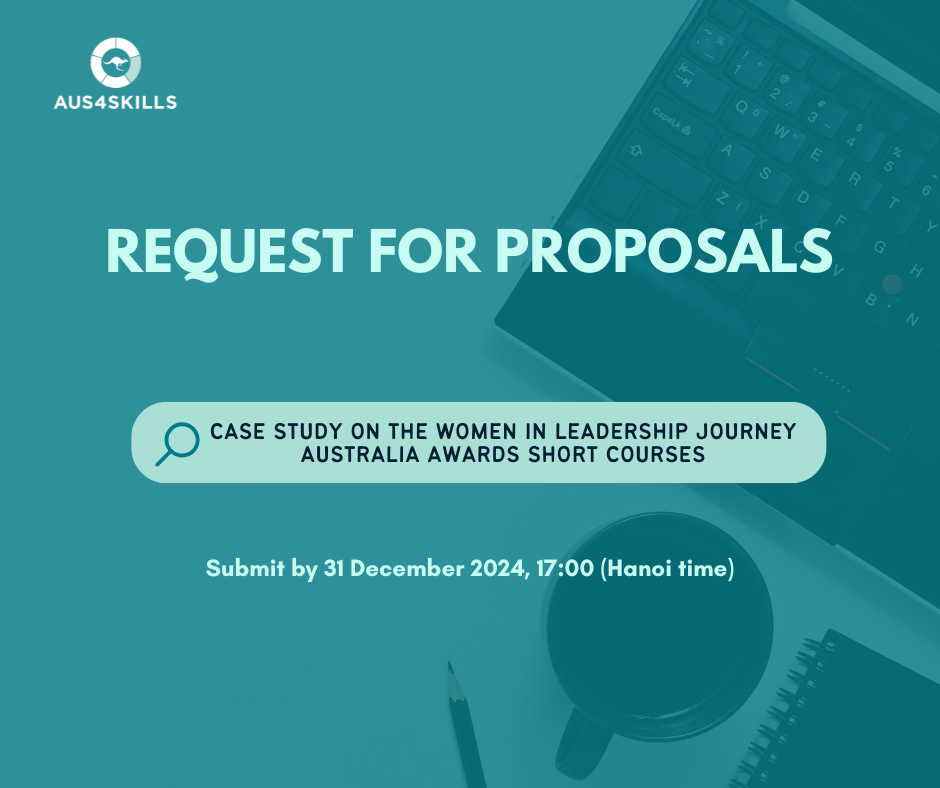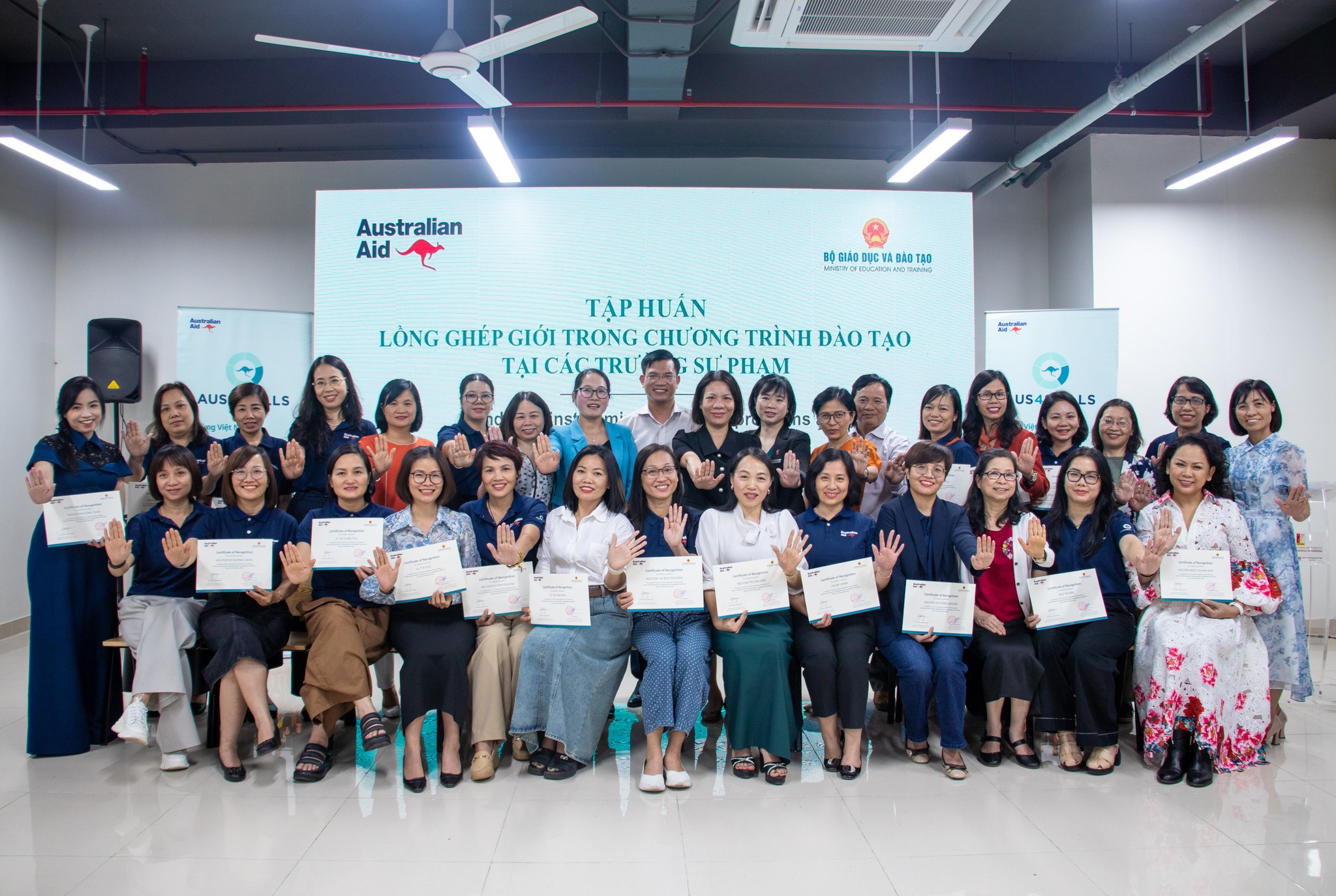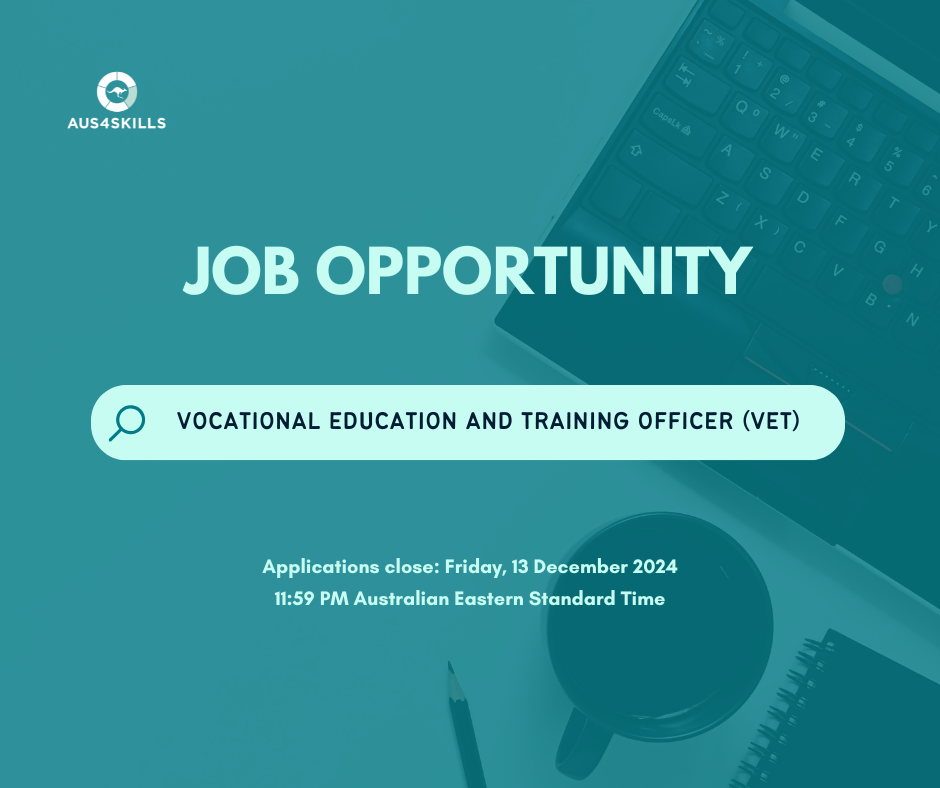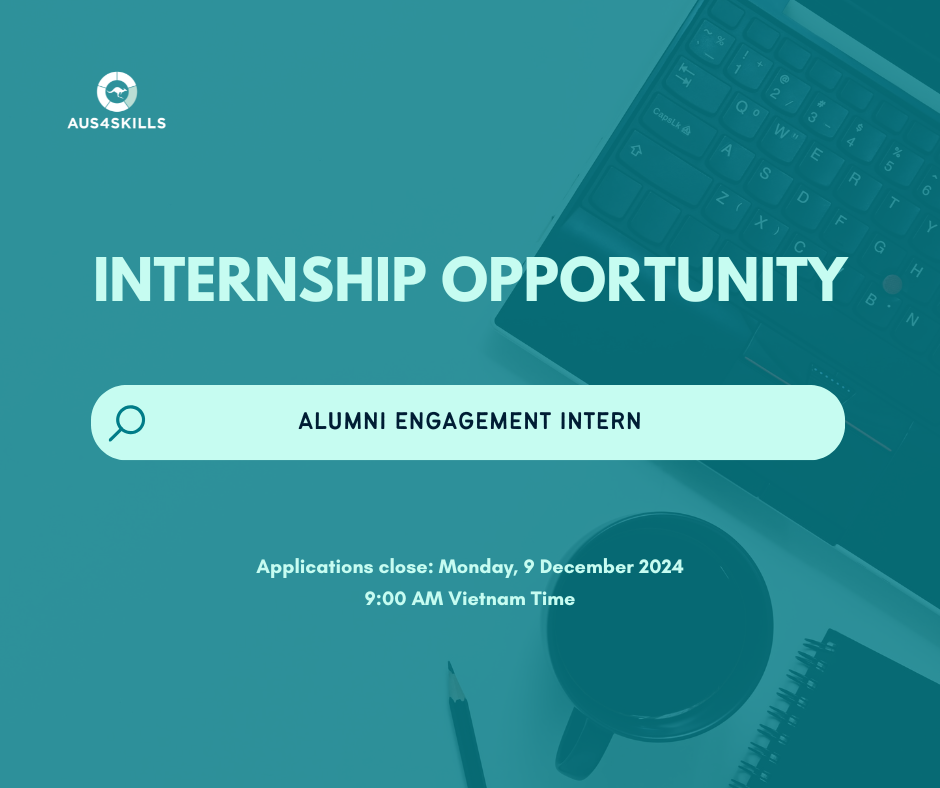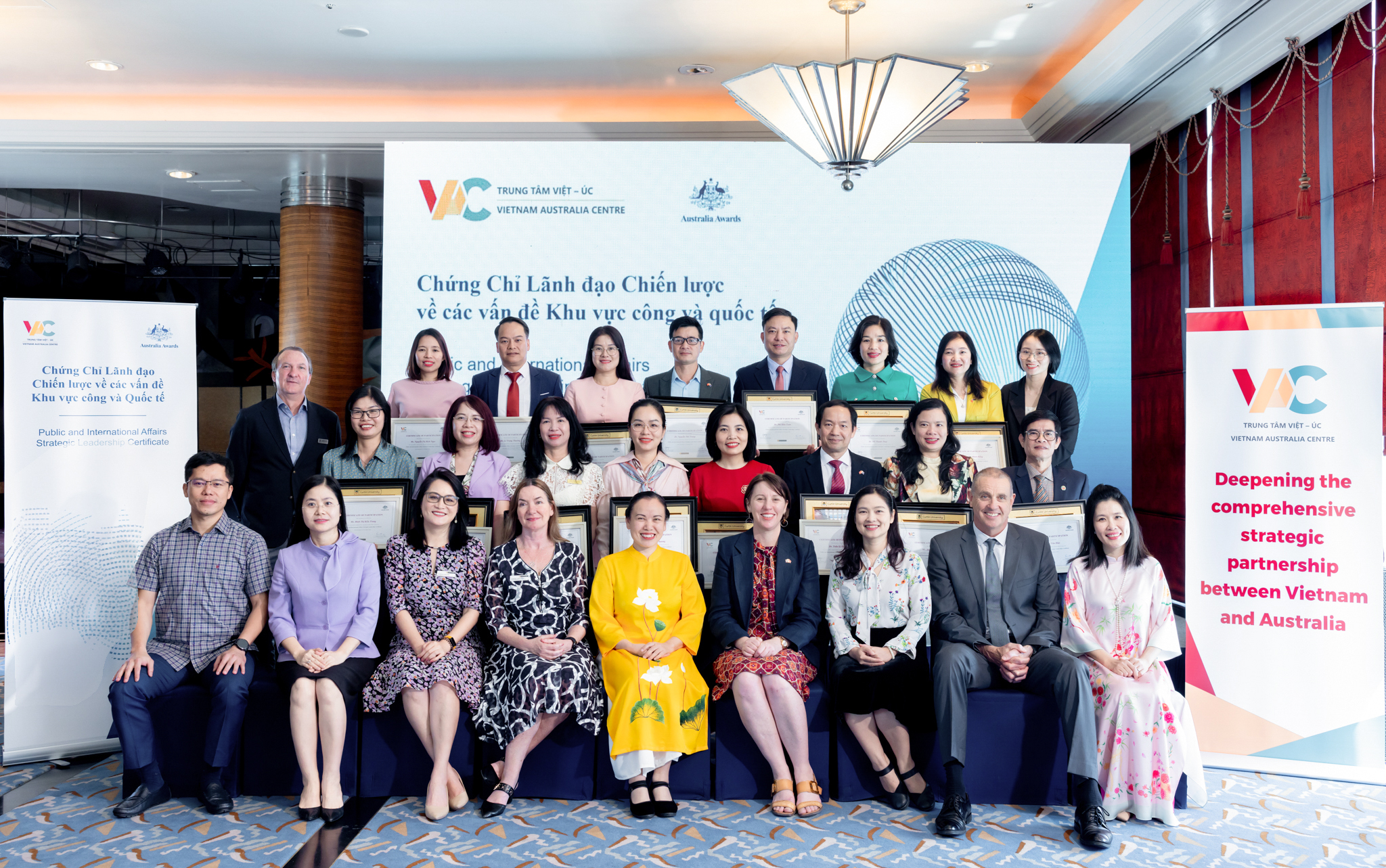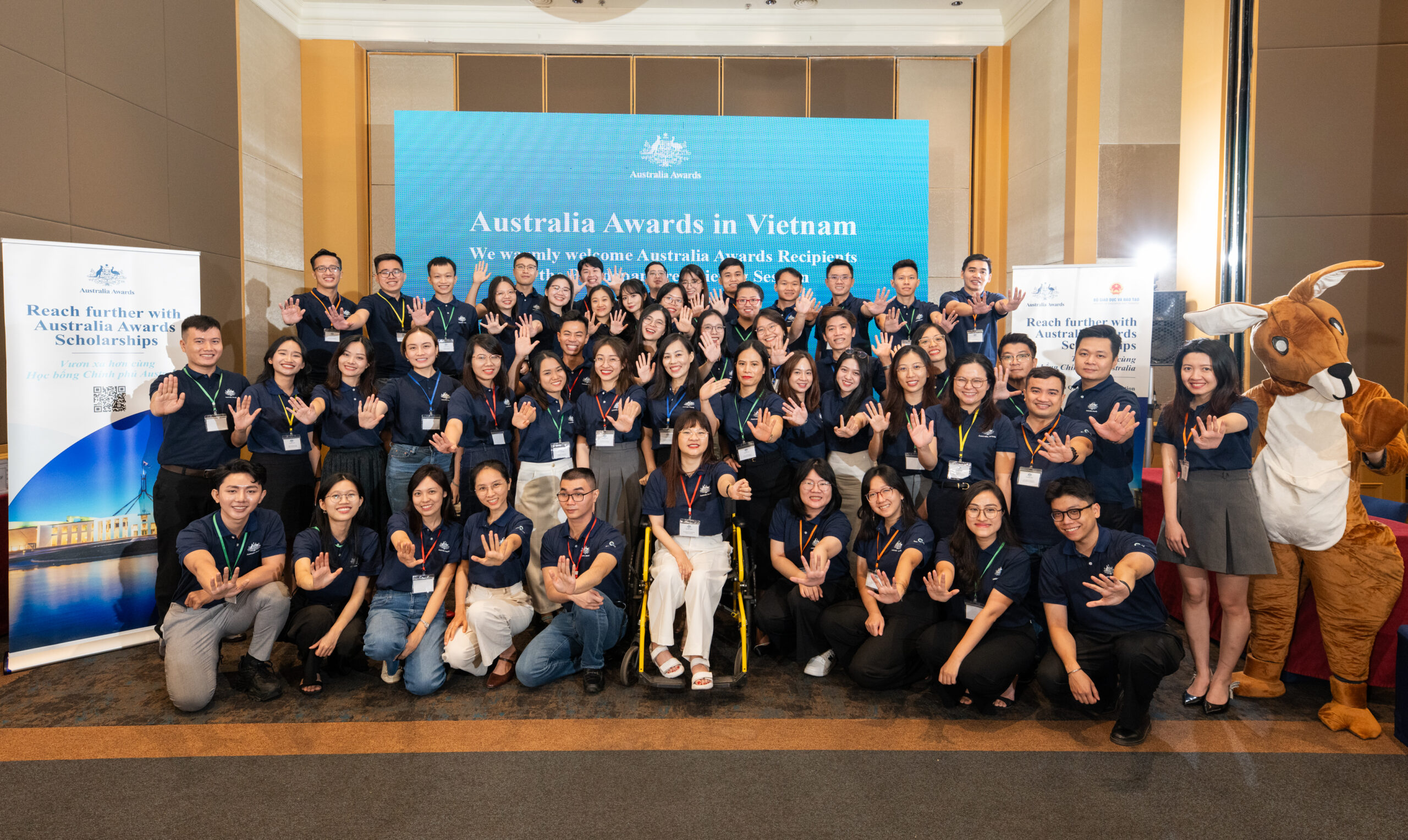Dr Vo Thi Hoang Yen is founder cum director of the Disability Resources and Development (DRD), and a lecturer at the Ho Chi Minh City Open University. “How she can have seemingly endless time, energy and enthusiasm to work and contribute to the society?” is a common question raised in admiration by her friends, colleagues, and students. In an interview with Education and Times Newspaper, Hoang Yen shared her desire, plans, and expectations after completing a PhD program under an Australia Awards Scholarship.
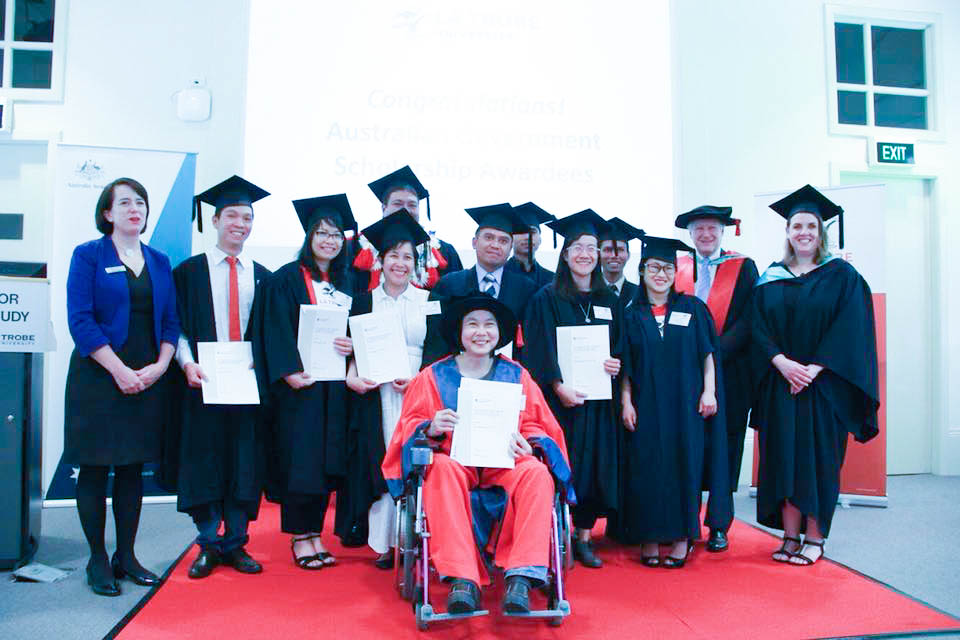
Dr Vo Thi Hoang Yen and other students at their graduation ceremony
– As you have just finished a PhD program under an Australia Awards Scholarship and returned to Vietnam, could you please share with us your feelings upon this occasion?
* I’ve just returned to Vietnam. I am re-arranging my work at the DRD and preparing for a long business trip. Thus, it is difficult to feel deeply about my surroundings at the present time. On the way from home to the office, I see new construction. In social organization networks, I see colleagues actively participating in and sharing their opinions at workshops on social issues or exchanging their experiences in social work. In addition, there are more young colleagues who are participating in social work clubs!
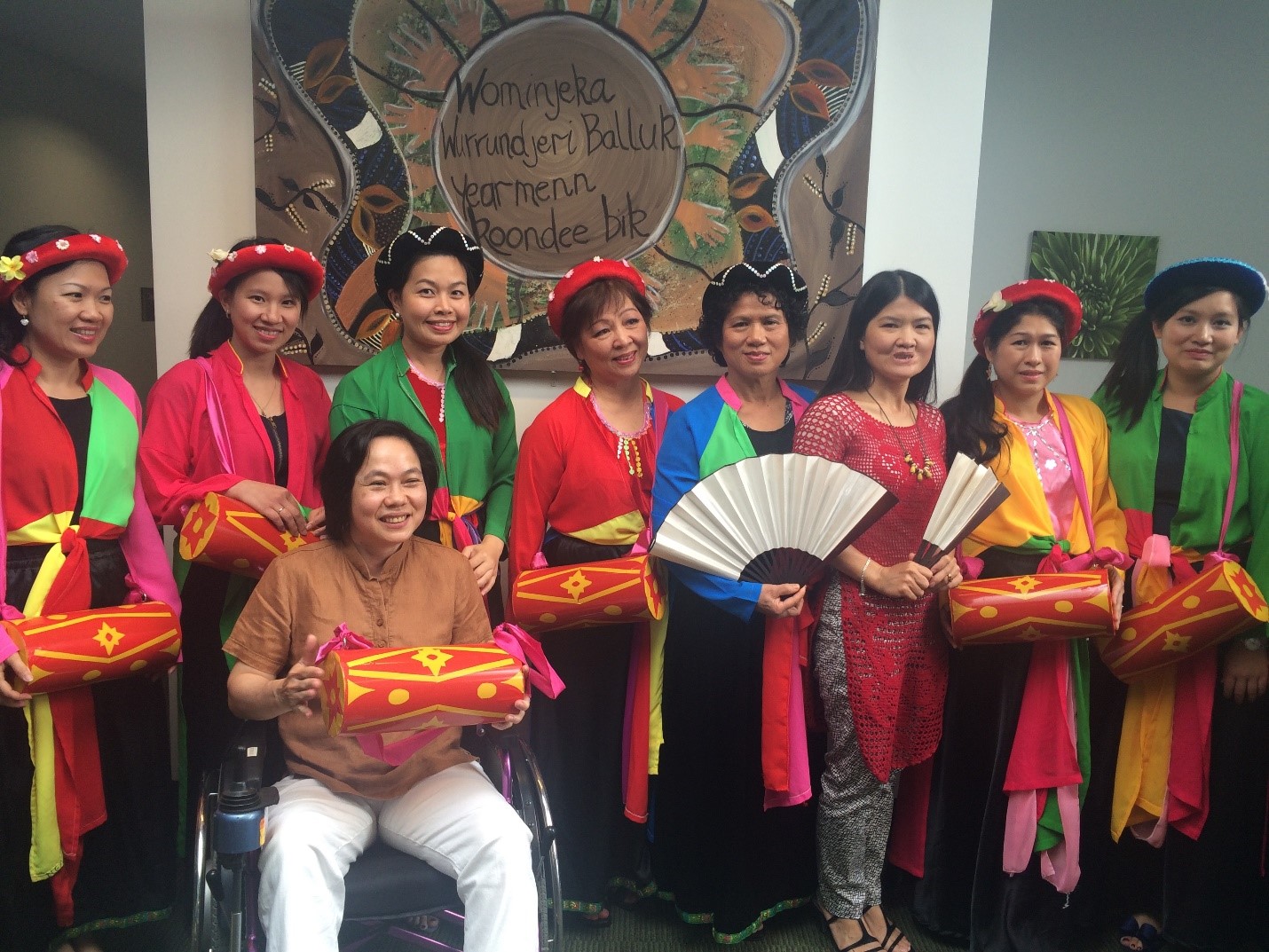
Dr Hoang Yen at the Cultural Event of Asian Australians 2015
– Participating in several activities for people with disability in Australia, what have you learned from these experiences? Could you share with us how will you apply your acquired knowledge and experience in Vietnam?
* During my PhD study in Australia, I participated in many workshops with participants from research institutes or with programs supporting people with disability to share my research results and experiences, and to advocate for policies and contribute to programs of the Australian Government relating to people with disabilities. I think the linkages and information exchange between governments, donors, and researchers are equally necessary to Vietnam given the wide gap between policies and implementation in supporting people with disability. Furthermore, policy implementation varies greatly among provinces in Vietnam.
– Life is not always easy. When we face difficulties, we can easily fall into negative thinking, though we know we shouldn’t. What do you usually do to overcome these moments?
* To be honest, it is not easy to eliminate negative thoughts and emotions. I have practiced for a long time to have a positive attitude. When difficulties arise, I usually try and figure out the reason for my negative thoughts. Whether they come from internal or external factors? Is this because of my over-expectations? Am I trying to do something which exceeds my current capacity and conditions? Did I focus overly on myself and forget to listen carefully, to understand reasons behind unsupportive persons? Is this because I did not put myself in others’ shoes so I cannot understand their detachments?
When I know where my negative thoughts come from, I can perhaps eliminate them. If problems are caused by external factors, I will analyze and consider whether there is something I can do to solve them. If there is a hope to find a solution, I will try to proceed in that direction. If these matters are beyond my ability at that time or I cannot find any solution, I will accept the situation and stop thinking about it.
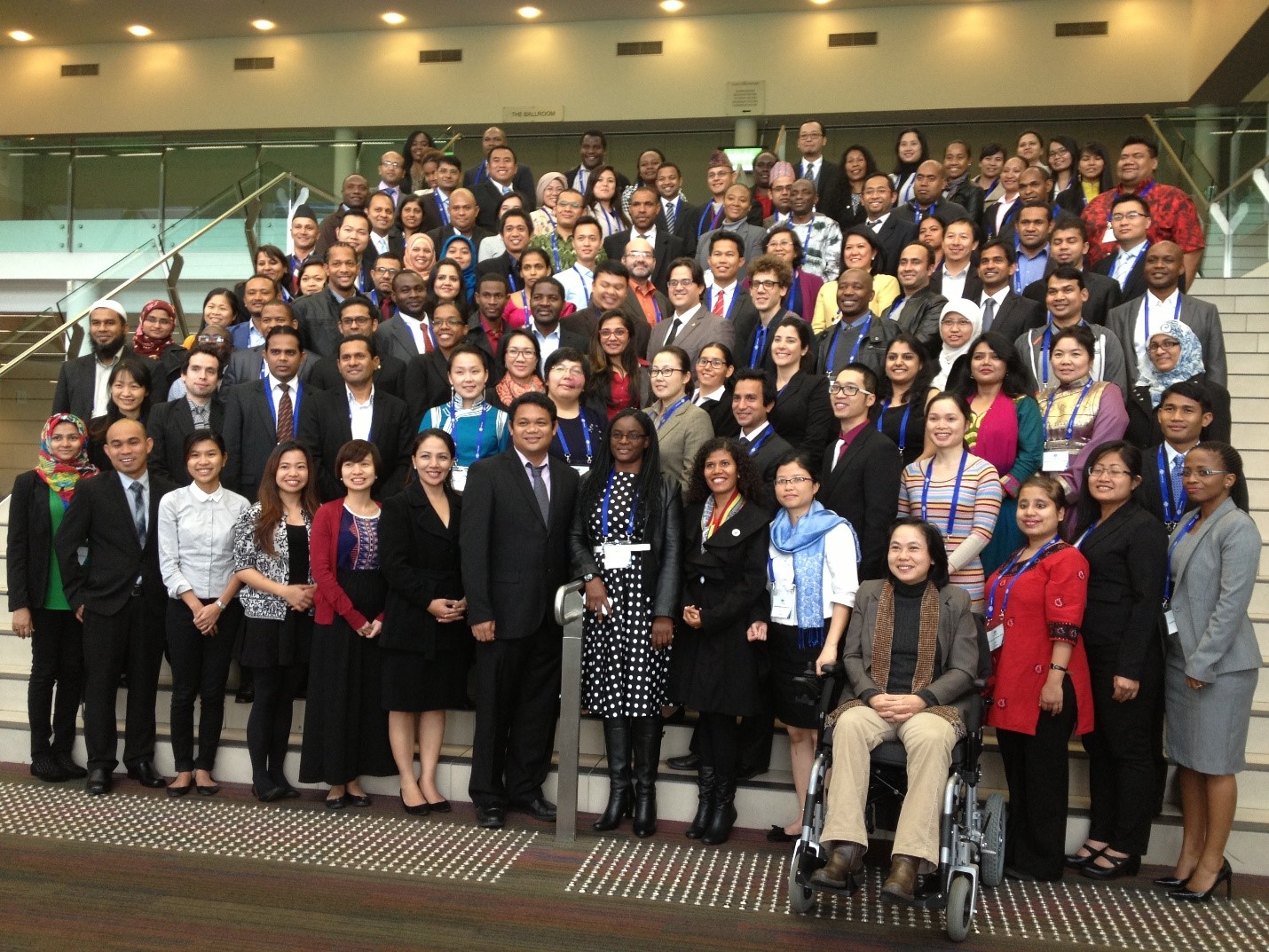
Dr Vo Thi Hoang Yen at the Australia Awards Leadership Program in Canberra, 2014
– With knowledge and skills acquired in Australia, how will you develop DRD in the future?
* With knowledge and skills gained in Australia, I would like to develop DRD as a professional social work practice centre, particularly for people with disability and young people. At the beginning, we will carry out activities in Ho Chi Minh City as a prototype model. In this model, social services including counselling, mental health treatment and information will be provided for people with disabilities and other vulnerable groups.
The centre will be a friendly and accessible place for people with disability, for exchanging experiences and learning essential life skills. Groups will be established by people with similar backgrounds and led by social workers with specialized education and experience. The centre will provide practical experiences for social work students or students from other relevant sectors. The difficulty is how to find donors and a location with appropriate space for these activities.
In Australia, these community-support activities receive full support from the government. However, since DRD’s establishment, we have received support from international organizations or foreign governments only, such as the United States, Ireland, Korea, and Australia. I need to develop a proposal and find funding sources for this idea.
– Could you please share your plans for the future?
* Maybe I am quite ambitious! I will continue to manage DRD and participate in the Vietnam Federation on Disability as Deputy Head of the Federation, in charge of the southern region. In addition, I would love to work with students and young people, thus this is one of my priorities. I will spend time for lectures, skills training, or discussions with them, if I have the opportunity!
Another important plan is turning my thesis into a book, because my supervisor and I believe that the book would be helpful for programs supporting people with disability and other disadvantaged communities. And another idea, please allow me to keep it secret at this moment!
– Thank you very much for the interview!
Source: Education and Times Newspaper.






